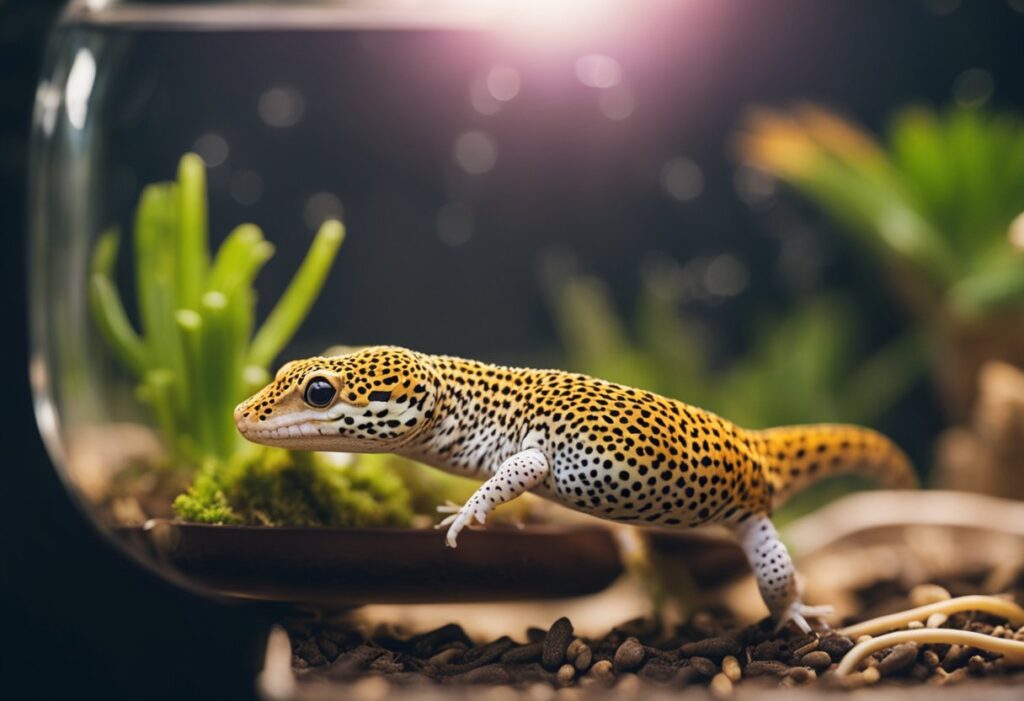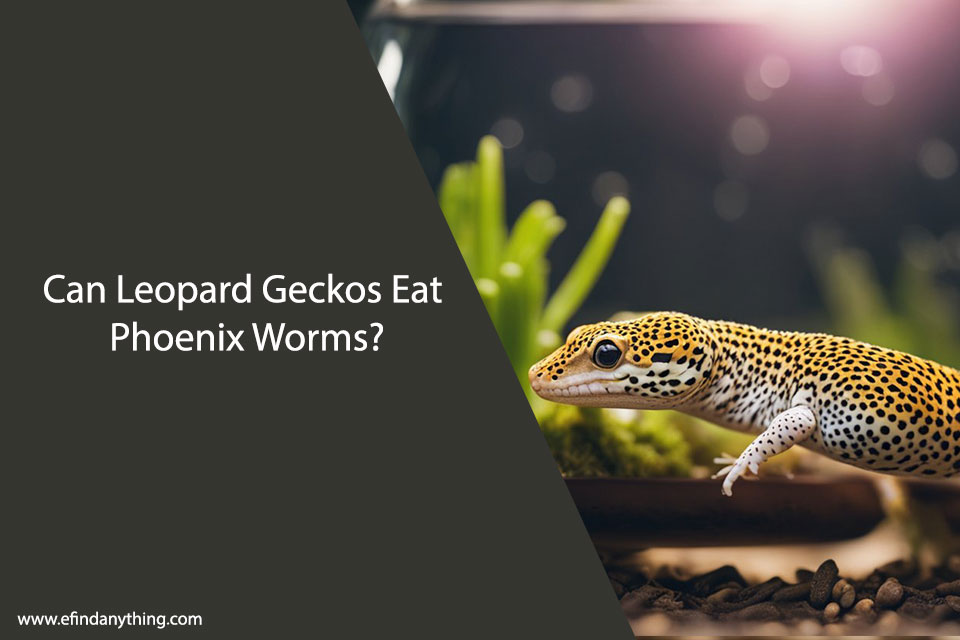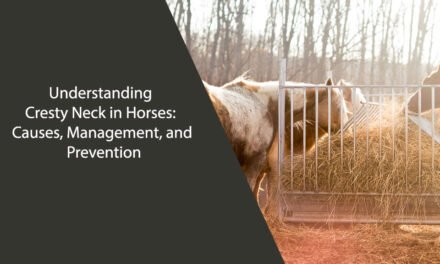Leopard geckos are a popular pet choice for many reptile enthusiasts due to their docile nature and low maintenance requirements. As with any pet, it is important to ensure that they are receiving a balanced and nutritious diet. Phoenix worms, also known as soldier fly larvae, have become a popular feeder option for many reptile owners. However, the question remains: can leopard geckos eat phoenix worms?

Phoenix worms are a nutritious feeder option for many reptiles, including leopard geckos. They are high in protein and calcium, which are essential nutrients for the growth and development of reptiles. In addition, they are low in fat and phosphorus, which can be harmful to reptiles if consumed in excess. However, it is important to note that not all leopard geckos may be willing to eat phoenix worms, as they can be picky eaters.
Table of Contents
Can Leopard Geckos Eat Phoenix Worms

Leopard geckos are insectivores, which means they feed on insects. Phoenix worms, also known as black soldier fly larvae, are a popular feeder insect for many reptiles, including leopard geckos. But can leopard geckos eat phoenix worms? The answer is yes.
Phoenix worms are a nutritious feeder insect for leopard geckos. They are high in calcium, protein, and other essential nutrients that leopard geckos require for a healthy diet. Additionally, phoenix worms are soft-bodied, making them easy for leopard geckos to digest.
It is important to note that while phoenix worms are a suitable feeder insect for leopard geckos, they should not be the only insect in their diet. Variety is crucial to ensure that leopard geckos receive all the necessary nutrients they need to thrive. Other feeder insects that can be included in their diet include crickets, mealworms, and dubia roaches.
When feeding phoenix worms to leopard geckos, it is essential to ensure that the worms are appropriately sized. The size of the worm should be no larger than the space between the leopard gecko’s eyes to prevent choking or digestive issues.
In conclusion, leopard geckos can eat phoenix worms as part of a balanced diet. They are a nutritious and easy-to-digest feeder insect that can provide essential nutrients to leopard geckos. However, they should not be the only insect in their diet, and appropriate sizing should be considered when feeding.
Nutritional Value of Phoenix Worms

Phoenix worms, also known as black soldier fly larvae, are a popular feeder insect for reptiles, including leopard geckos. These worms are high in protein and fat, making them a nutritious option for your pet.
In terms of protein, phoenix worms have a protein content of around 20%, which is higher than other feeder insects like crickets and mealworms. Additionally, they have a favorable calcium to phosphorus ratio, which is important for maintaining healthy bones in leopard geckos.
Phoenix worms are also a good source of fat, with a fat content of around 15%. However, it’s important to note that while fat is an important part of a leopard gecko’s diet, too much fat can lead to health problems.
In addition to protein and fat, phoenix worms are also a good source of other important nutrients like vitamins and minerals. They contain high levels of calcium, which is important for bone health, as well as iron, magnesium, and zinc.
Overall, phoenix worms are a nutritious feeder insect option for leopard geckos. However, as with any feeder insect, they should be fed in moderation as part of a balanced diet.
Benefits of Phoenix Worms in a Leopard Gecko’s Diet

Leopard geckos are insectivores and require a varied diet to maintain optimal health. Phoenix worms, also known as soldier fly larvae, are a nutritious addition to a leopard gecko’s diet. Here are some of the benefits of feeding phoenix worms to leopard geckos:
Calcium Content
Phoenix worms are an excellent source of calcium, which is essential for leopard geckos to maintain strong bones and prevent metabolic bone disease. In fact, phoenix worms have a calcium to phosphorus ratio of 1.5:1, which is ideal for leopard geckos.
Protein Quality
Phoenix worms are high in protein and contain all the essential amino acids that leopard geckos need to build and repair muscle tissue. The protein in phoenix worms is also highly digestible, which means that leopard geckos can absorb and utilize it efficiently.
Fat Ratio
Phoenix worms have a low fat content, which makes them a healthy treat for leopard geckos. Feeding too many fatty insects can lead to obesity and other health problems in leopard geckos. Phoenix worms also have a good balance of omega-3 and omega-6 fatty acids, which are important for maintaining healthy skin and a shiny coat.
In conclusion, phoenix worms are a nutritious and beneficial addition to a leopard gecko’s diet. They provide a good balance of calcium, protein, and healthy fats, which are essential for maintaining optimal health. As with any new food, it is important to introduce phoenix worms gradually and monitor your leopard gecko’s health and appetite.
Feeding Guide for Leopard Geckos
Leopard geckos are easy to feed and care for, making them a popular choice for reptile enthusiasts. One of the most important aspects of caring for a leopard gecko is providing them with a healthy and balanced diet. This section will provide a guide for feeding leopard geckos, including age-appropriate portions, frequency of feeding, and feeding techniques.
Age-Appropriate Portions
Leopard geckos have different dietary needs depending on their age. Hatchlings require smaller portions and more frequent feedings, while adult geckos require larger portions and less frequent feedings. As a general rule, a hatchling should be fed daily, while an adult gecko can be fed every other day.
The following table provides a guide for age-appropriate portions:
| Age | Portion Size |
|---|---|
| Hatchling | 3-5 appropriately sized insects per feeding |
| Juvenile | 5-7 appropriately sized insects per feeding |
| Adult | 7-10 appropriately sized insects per feeding |
Frequency of Feeding
Leopard geckos are opportunistic feeders, meaning they will eat whenever food is available. However, it is important to establish a feeding schedule to ensure your gecko is receiving the appropriate amount of food. As mentioned above, hatchlings should be fed daily, while adult geckos can be fed every other day.
It is also important to note that leopard geckos should not be fed insects that are larger than the space between their eyes. This can lead to impaction, a potentially fatal condition where the gecko is unable to pass the food through their digestive system.
Feeding Techniques
There are several feeding techniques that can be used to ensure your leopard gecko is receiving the appropriate amount of food. One technique is to feed them in a separate container to prevent them from ingesting substrate or other foreign objects. Another technique is to use feeding tongs to offer the insects to your gecko, which can help prevent accidental bites.
In conclusion, providing a healthy and balanced diet is essential for the health and well-being of your leopard gecko. By following the guidelines outlined in this section, you can ensure your gecko is receiving the appropriate amount of food and nutrients they need to thrive.
Potential Risks of Feeding Phoenix Worms
Phoenix worms are a popular feeder insect for leopard geckos due to their high nutritional value. However, there are some potential risks associated with feeding them to your pet.
Choking Hazards
Phoenix worms are small and soft-bodied, which makes them easy for leopard geckos to swallow. However, there is still a risk of choking if the worm is too large or if the gecko eats too quickly. This can lead to serious health issues or even death.
To minimize the risk of choking, it is important to choose appropriately sized worms for your gecko and to supervise feeding to ensure that your pet is not eating too quickly.
Digestive Issues
Leopard geckos have sensitive digestive systems, and feeding them too many phoenix worms can lead to digestive issues such as diarrhea or impaction. This can be especially problematic if the worms are not properly gut-loaded or if they are fed in excess.
To prevent digestive issues, it is important to feed phoenix worms in moderation and to ensure that they are properly gut-loaded with nutritious foods. It is also important to provide your gecko with a varied diet that includes other feeder insects and appropriate supplements.
In conclusion, while phoenix worms can be a nutritious addition to a leopard gecko’s diet, it is important to be aware of the potential risks associated with feeding them. By taking proper precautions and feeding in moderation, you can help ensure that your gecko stays healthy and happy.
Preparing Phoenix Worms for Your Leopard Gecko
Phoenix worms are a popular feeder insect for leopard geckos due to their high nutritional value and low fat content. Before feeding phoenix worms to your leopard gecko, it is important to properly prepare them to ensure they are safe and healthy for your pet.
One way to prepare phoenix worms is to gut-load them with nutritious food. Gut-loading involves feeding the insects a nutritious diet before feeding them to your leopard gecko. This ensures that your pet receives the maximum nutritional benefit from the insects. Some good options for gut-loading phoenix worms include carrots, sweet potatoes, and leafy greens.
Another important step in preparing phoenix worms is to dust them with a calcium supplement. Calcium is essential for the health and well-being of leopard geckos, and dusting the insects with a calcium supplement ensures that your pet receives the necessary amount of this vital nutrient. It is recommended to dust phoenix worms with calcium powder at least once a week.
Lastly, it is important to ensure that the phoenix worms are properly sized for your leopard gecko. Feeding your pet insects that are too large can cause digestive issues and even lead to impaction. As a general rule, phoenix worms should be no larger than the space between your leopard gecko’s eyes.
By following these simple steps, you can ensure that the phoenix worms you feed your leopard gecko are safe, healthy, and provide the necessary nutrition for your pet’s well-being.
Alternative Food Options for Leopard Geckos
Leopard geckos are known for their unique dietary requirements, which include a variety of live insects. While crickets are the most commonly fed insect, there are other options available that can provide a nutritious and varied diet for your gecko.
Insect Variety
In addition to crickets, leopard geckos can also eat mealworms, superworms, and waxworms. Each insect has its own nutritional benefits, so it is recommended to rotate between them to ensure a well-rounded diet.
Mealworms are high in protein and are a good source of calcium, while superworms are higher in fat and can be fed as an occasional treat. Waxworms are high in fat and should only be fed as an occasional treat due to their low nutritional value.
Supplemental Foods
In addition to live insects, leopard geckos can also benefit from supplemental foods such as phoenix worms, also known as black soldier fly larvae. Phoenix worms are high in calcium and protein, making them a nutritious addition to your gecko’s diet.
Other supplemental foods include pinkie mice, which can be fed as an occasional treat, and commercial gecko diets, which should only be used as a supplement to live insects.
It is important to remember that while these alternative food options can provide variety and nutrition to your leopard gecko’s diet, live insects should still make up the majority of their diet.
Monitoring Your Leopard Gecko’s Health
Leopard geckos are generally hardy and easy to care for, but they can still develop health problems if their needs are not met. It is important to monitor your gecko’s health regularly to catch any potential issues early on. Here are some tips for keeping your leopard gecko healthy:
1. Observe their behavior
One of the easiest ways to monitor your leopard gecko’s health is to observe their behavior. A healthy gecko should be active, alert, and curious. If your gecko is lethargic, hiding all the time, or not eating, it could be a sign of an underlying health issue.
2. Check their weight
Leopard geckos should maintain a healthy weight for their size and age. You can monitor your gecko’s weight by weighing them regularly on a kitchen scale. If your gecko is losing or gaining weight rapidly, it could be a sign of a health problem.
3. Keep track of shedding
Leopard geckos shed their skin regularly, and a healthy gecko should shed their skin in one piece. If your gecko is having difficulty shedding, it could be a sign of dehydration or other health issues.
4. Monitor their feces
Leopard gecko’s feces can tell you a lot about their health. Healthy feces should be well-formed and not too runny or hard. If your gecko’s feces are consistently abnormal, it could be a sign of a digestive issue.
In addition to these tips, it is important to provide your leopard gecko with a proper diet, clean water, and a suitable habitat. By monitoring your gecko’s health regularly and addressing any issues promptly, you can help ensure a long and healthy life for your pet.
Frequently Asked Questions
What are the benefits of feeding Phoenix worms to leopard geckos?
Phoenix worms are a great source of protein and calcium for leopard geckos. They are also low in fat, making them a healthy addition to a leopard gecko’s diet. Additionally, Phoenix worms are easy to digest, which reduces the risk of digestive problems in leopard geckos.
How often should leopard geckos be fed Phoenix worms?
Leopard geckos can be fed Phoenix worms as a treat or a supplement to their regular diet. It is recommended to feed them Phoenix worms once or twice a week, depending on their age and size.
Can Phoenix worms be a staple in a leopard gecko’s diet?
Phoenix worms can be a part of a leopard gecko’s diet, but they should not be the only food source. A varied diet that includes other insects and occasional small amounts of fruits and vegetables is important for the overall health of leopard geckos.
What is the nutritional value of Phoenix worms for leopard geckos?
Phoenix worms are high in calcium, protein, and other essential nutrients that are important for the growth and development of leopard geckos. They also contain a favorable calcium to phosphorus ratio, which is important for maintaining healthy bones and preventing metabolic bone disease.
How should Phoenix worms be prepared for leopard geckos?
Phoenix worms can be fed to leopard geckos alive or dead. If feeding them alive, it is important to ensure that the worms are not too large for the gecko to swallow. If feeding them dead, it is recommended to dust them with a calcium supplement before feeding them to the gecko.
Are there any risks associated with feeding Phoenix worms to leopard geckos?
Phoenix worms are generally considered safe for leopard geckos to eat. However, it is important to ensure that they are purchased from a reputable source and are not contaminated with harmful bacteria or parasites. Additionally, overfeeding Phoenix worms can lead to obesity and other health problems in leopard geckos.





